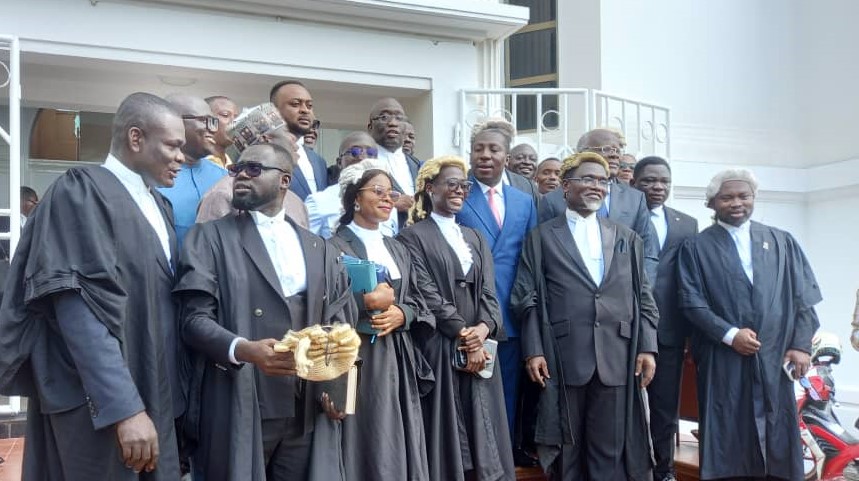By Joyce Danso
Accra, Nov. 12, GNA – The Supreme Court, in a 5-2 majority decision, has ruled that the Speaker’s declaration of four vacant parliamentary seats is unconstitutional.
The ruling came after the court upheld an application filed by Majority Leader Alexander Afenyo Markin challenging Speaker Alban Bagbin’s decision to declare the seats vacant.
The seven-member panel, led by Chief Justice Gertrude Sackey Torkornoo, concluded that the plaintiff’s action was successful.
The majority decision was supported by Chief Justice Torkornoo, Justice Mariama Owusu, Justice Samuel K. Asiedu, Justice Ernest Gaewu, and Justice Yaw Asare Darko.
Justices Avril Lovelace Johnson and Amadu Tanko dissented, raising concerns about jurisdiction.
The court indicated that the full judgment and reasoning would be made available by the end of the day on November 13, 2024.
During the proceedings, a heavy police presence was noted around the Supreme Court building.
The case centered on the interpretation of Article 97, clauses 1(g) and 1(h) of the Constitution, following the Speaker’s ruling regarding the seats of MPs who had crossed carpets.

Afenyo Markin filed the case to challenge the Speaker’s decision, which affected the seats of Cynthia Morrison (Agona West), Kwadwo Asante (Suhum), Andrew Amoako Asiamah (Fomena), and Peter Kwakye Ackah (Amenfi Central).
The court allowed the parties involved—Afenyo Markin (the plaintiff), the Attorney General, and the Speaker of Parliament—to submit their statements of case.
On November 11, 2024, after hearing arguments from various lawyers, the court scheduled November 12, 2024, for the delivery of its judgment.
However, the Speaker of Parliament’s lawyer, Mr. Thaddeus Sory, was absent from the proceedings, and no processes were filed on his behalf.
Following the court’s ruling on November 12, 2024, Mr. Godfred Yeboah Dame, the Attorney General and Minister of Justice, told journalists that it was now imperative for the Speaker of Parliament to recall Parliament to comply with the court’s decision.
He said that failing to do so would suggest double standards and undermine the principles the country upholds.
“The Supreme Court is the final authority on constitutional matters in this country, and its interpretation is definitive.
“Just as in the United States, the United Kingdom and other advance democracies, Supreme Court rulings are respected and complied with, even if leaders express personal disagreement…This is the essence of respecting judicial authority in a democratic society,” the Attorney General stated.
GNA